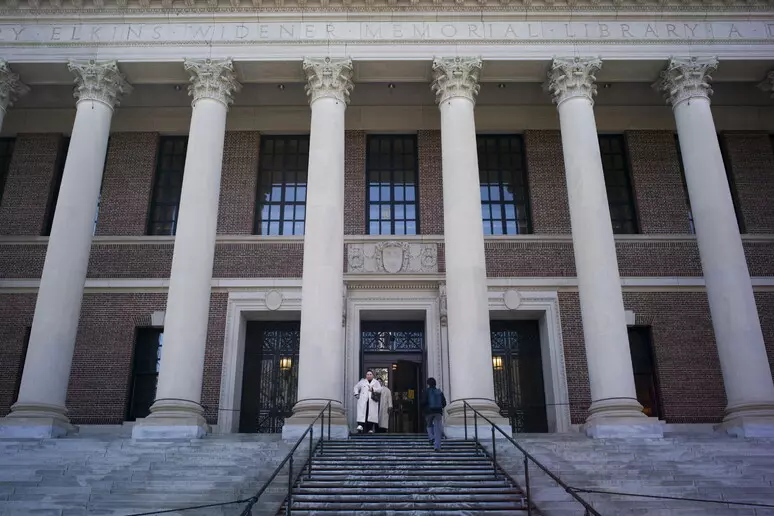In an increasingly tense political climate, even university teaching has come under scrutiny. The latest controversy involving Harvard concerns a calculus course. The university has been accused by the White House of offering “remedial math” classes to first-year students. It is unheard of for a president to get involved in the approval or disapproval of a specific course.
During a briefing, Donald Trump mocked the skills of students at America’s most prestigious university, suggesting that some of them were unable to perform basic arithmetic. A remark that went viral and quickly evolved into an official narrative.
In addition to the President’s insinuations, two federal agencies have echoed the claim that Harvard has lowered its standards to the point of needing to offer “middle school math” recovery programs. But a closer look reveals a very different picture.
The students already have four years of math behind them and SAT scores in the highest range well above the 95th national percentile.
However, the controversy has deeper roots. It all began last fall, when the institution expanded its academic offerings by adding a new section of introductory calculus, held five days a week instead of four. The stated goal was to allow more time to review fundamental algebra concepts, often weakened during the pandemic.
In September, the student newspaper The Harvard Crimson described the new module as an attempt to “address gaps in basic algebra skills,” though it failed to mention that it was part of the university’s regular academic offerings.
In March, Marc Porter Magee, head of an education advocacy organization, reposted the Crimson article on X, claiming that for the first time in its history, the campus had been forced to offer a remedial program. The post garnered more than one million views.
The comparison, though inaccurate, became a political weapon. On April 23, Trump publicly reiterated that certain universities, implicitly referring to Harvard, were now teaching basic math concepts that “anyone could easily solve.” He also questioned how it was possible that top-performing students were being excluded, while others with weaker skills gained admission.
Secretary of Education Linda McMahon also weighed in, openly speaking of a “betrayed meritocracy,” and wrote to the university to announce a freeze on federal funding. In her letter, she described the need for such a course as “embarrassing,” and questioned how a university known for its selectiveness could lower the bar so drastically.
On Tuesday, another federal official, Josh Gruenbaum, circulated an internal memo urging agencies to review, and potentially cancel, all current contracts with the institution.
Responses from the campus were not long in coming. It was clarified that although the pandemic had caused some learning gaps, enrolled students continue to perform at a very high level in mathematics. The new section of the calculus course included about 20 students and uses the same exams as the standard version.
Regardless of the specific debate surrounding this course, there is an iron-bound principle at stake. University curriculums have long been considered off-limits for political interference in order to safeguard academic freedom and institutional autonomy. Donald Trump’s vendetta against universities—and specifically, Harvard, is unprecedented and violates this fundamental axiom of American education.
Curriculums are crafted by scholars and experts in their fields, not politicians who may lack the necessary academic background. While governments in general, do play a role in funding education and setting broad educational standards, direct involvement in university curriculums can be seen as a threat to free inquiry and innovation.











